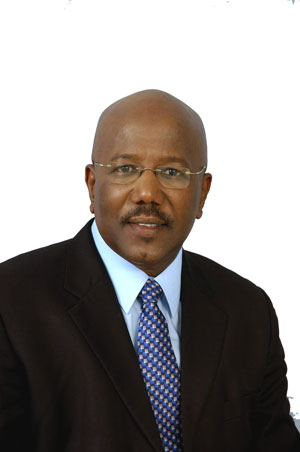 On the occasion of the first CBCS Central Banking Conference Caribbean Central Banking since the Financial Crisis
On the occasion of the first CBCS Central Banking Conference Caribbean Central Banking since the Financial Crisis
Sonesta Maho Beach Resort, Sint Maarten
March 31st, 2016
Distinguished guests,
Ladies and gentlemen,
Good evening.
It gives me great pleasure to join you this evening at the welcome dinner for the first central banking conference of the Centrale Bank van Curaçao en Sint Maarten.
Firstly, on behalf of the government of Sint Maarten, allow me to extend a warm welcome to all the speakers and participants who have travelled to Sint Maarten for this conference. I trust you will enjoy our hospitality and find your stay fruitful.
In 2010, Sint Maarten became an autonomous country within the Dutch Kingdom. During the negotiations regarding the constitutional changes, it was decided that Curaçao and Sint Maarten would become a monetary union with a common central bank and currency.
Sint Maarten has always expressed its wish, as one of the two shareholders of the Bank, that the office in Sint Maarten be equipped to function as a full-fledged institution with more presence in our community.
Therefore, I applaud the initiative of choosing Sint Maarten as the location for the first central banking conference of the Central Bank Curacao and Sint Maarten.
In addition, tomorrow’s open session for the public where the Bank’s tasks and responsibilities will be covered is a positive step in the right direction.
Fact is, if we were to measure the level of financial literacy of our people, including several in authority, we would not qualify to even be in the Banking Kindergarten. But take heart. We are certainly not alone.
This is what Senator Barry Goldwater once said about banking: “Most Americans have no real understanding of the operation of the international money lenders.”
But industrialist Henry Ford saw this as a blessing in disguise. He said, “It is well that the people of the nation do not understand our banking and monetary system, for if they did, I believe there would be a revolution before tomorrow morning.”
The revolution I hope would be coming out of this conference, would be how to make our financial system work for the ordinary man and woman in Sint Maarten, and by extension, throughout the rest of the Caribbean.
Over the course of the past five years, political discussions have taken place with respect to the benefits and costs of the monetary union and whether we should proceed with it. In these discussions, official dollarization for Sint Maarten has been considered as a viable alternative.
Although from a political point of view, we might have our own opinion on this subject, I am glad that today we have had the opportunity to learn from the experiences of a long-term monetary union in the region, the Eastern Caribbean monetary union.
Ladies and gentlemen, besides the ongoing discussions about the exchange rate system, Sint Maarten has faced several challenges since becoming an autonomous country within the Dutch Kingdom.
One of these challenges was to set up a new government apparatus of which several tasks used to resort under the umbrella of the former Netherlands Antilles in Willemstad.
Another challenge has been adherence to the strict budgetary rules imposed by the Kingdom Act of Financial Supervision and controlled by the Financial Supervision Board, the “CFT”.
Furthermore, similar to most countries, Sint Maarten will have to take measures related to the health care and pension systems to reduce their burden on the public budget and make them financially sustainable.
Nevertheless, despite these challenges, Sint Maarten has been able to post real economic expansion over the past five years with an average real GDP growth of 0.9%. Economic growth has been driven primarily by the tourism sector, which is Sint Maarten’s main economic pillar.
However, we are aware that the tourism sector is very vulnerable to external shocks, particularly given its high dependence on the North American market.
Therefore, we do realize that efforts are needed to further develop the tourism sector and attract more visitors from other countries besides North America. In addition, developing and strengthening other sectors in our economy is necessary to make Sint Maarten a more diversified economy.
Ladies and gentlemen, an average annual growth of 0.9% is not sufficient to improve the well-being of every Sint Maarten citizen. To achieve a higher growth path, we need to invest in the economy. Both public and private investments are necessary.
Public investments are crucial to make the business climate more attractive. We need to further improve our infrastructure, strengthen our government apparatus, improve the quality of our education system, and develop our capital market.
At the same time, private investments are crucial because in the medium and long term, private investments lead to productivity growth and, hence, higher economic growth.
Therefore, I would like to call on the financial sector, many of whose representatives are participating in this conference, to support more proactively important investment projects in Sint Maarten that will enhance our growth prospects.
However, to improve the well-being of the people of Sint Maarten, economic growth must be inclusive. In other words, we should aim not only at achieving higher growth figures but also that growth should translate into less poverty and inequality.
One of the barriers that we are currently facing in this context is a high youth unemployment rate. High and persistent youth unemployment has several individual and social costs and risks, including risky behavior of the unemployed youth and fiscal burdens to the society.
Therefore, the government of Sint Maarten will introduce an active
labour market program that, in close collaboration with the private sector, provides a quick employment solution for a number of our young people.
The youngsters that participate in the program will be placed in a job that aligns best with their specific set of skills, abilities, and personal characteristics and interests. At the same time they will receive life skills training.
Furthermore, the youngsters will be enrolled in a compulsory savings plan to teach them the value of money and saving for the future. In my opinion, the compulsory savings plan is imperative if we want people to progress.
Therefore, I think that tomorrow’s session on behavioral economics and its impact on personal finance is a very relevant and important topic.
Hopefully this session will provide us with more insights into how the governments and the financial sector can effectively promote financial education and a better management of personal finances.
In conclusion, ladies and gentlemen, although Sint Maarten has been facing several challenges, we also have a great opportunity, through combining efforts of the public and private sectors, to achieve a higher and more inclusive growth path.
Conferences such as this one hosted by the Centrale Bank van Curacao en Sint Maarten, are important in that context as they provide us with best practices and new ideas on how we can foster the further development and progress of our country.
I wish you most heartily a very productive conference. To those of you visiting, welcome once again to our Friendly Island and let me remind you that you would be doing yourselves a great injustice if you do not make the time to enjoy some of our most unique offerings.
Thank you for your attention.
Prime Minister William Marlin











